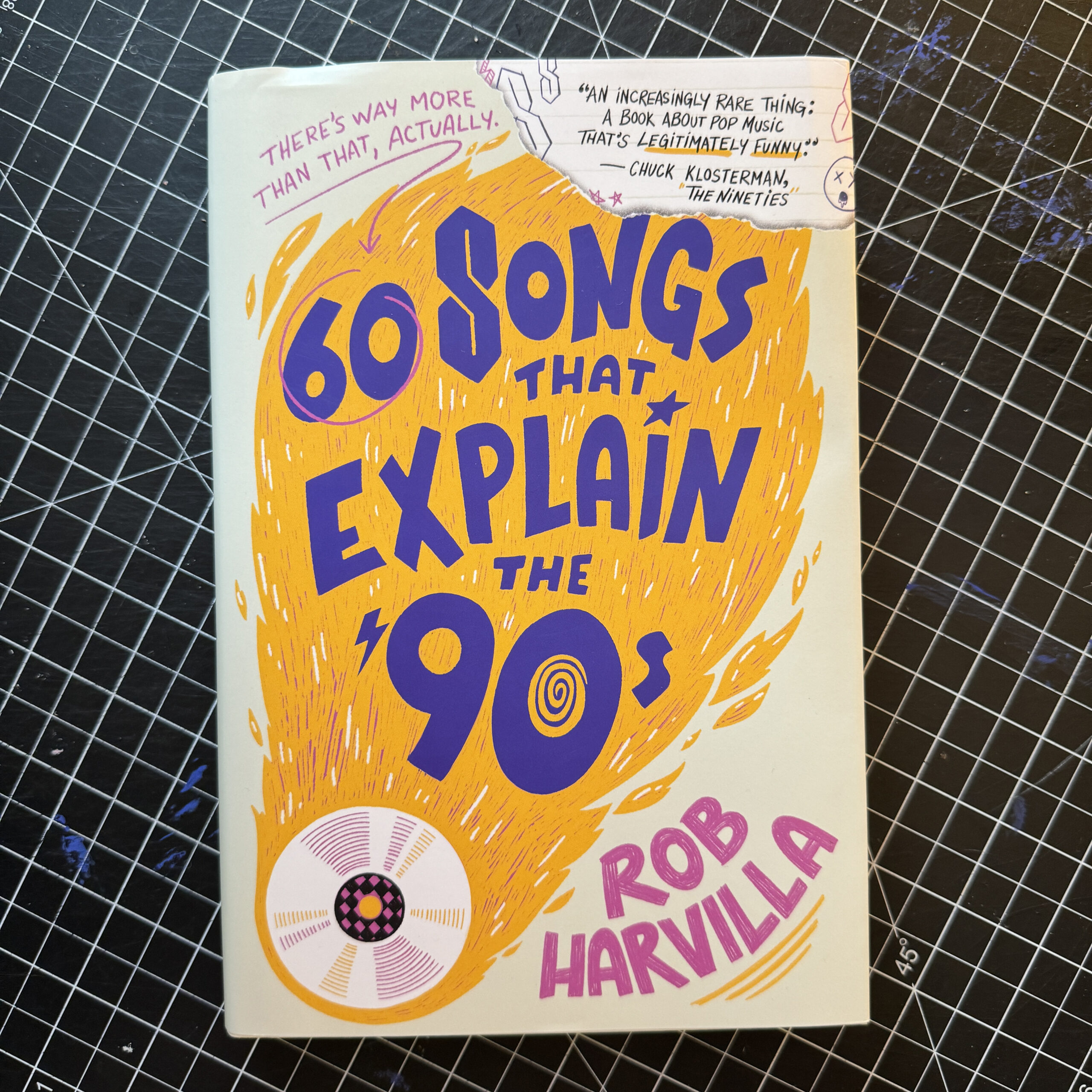
I pre-ordered Rob Harvilla’s book 60 Songs That Explain the ’90s back in October when I learned of its existence. It arrived at my front door on November 14th as Amazon said it would. I’ve been listening Rob’s podcast of the same name for a few years now. I dig it for a few reasons. First and most importantly, Rob is a great storyteller. His ability to recall music and and their connection to events in his childhood is impressive. Second, he has a great sense of humor and a good chunk of that humor comes in the form of self-deprication (I’m suspicious of anyone who takes his/herself too seriously). Thirdly, Rob is only a few years younger than me so everything he talks about sounds like it could have happened to me. The parasocial relationship between us is real. Hey Rob, call me.
Rob writes out each episode of 60 Songs so reading the book is like listening to the show. I don’t need to buy the audiobook version (although I will) because Rob’s voice is narrating the book in my head as I read words on the pages.
Here’s a bit from the introduction:
I am loath to lay on you, even now, some ultra-pretentious Grand Unified Theory of the 1990s, which I’ve always glibly described as "Far enough away to feel like the past, but close enough to still be hounding the present." As an era the ’90s does feel distinct and tangible and whole, with its own semi-unified fashion sense and sound and cultural ethos; those specifics radically differ, of course, from person to person, but I’m guessing the 2000s or 2010s don’t conjure up quite as vivid a mental picture for you. But that’s just a guess, and I’m suspicious of any attempt to retroactively frame the ’90s as some frictionless halcyon era, because while the decade’s got a few concrete elements in its favor fewer wars, more journalism jobs, no Twitter—all that talk about how good we used to have it immediately raises thorny questions of the how good for whom, and why? variety. Generalizing makes me nervous. Even more nervous than usual.
And I loved this bit on Céline Dion:
All of which explains why listening to this person sing is like drinking rosé from a fire hose. I have a visceral memory of sitting in my high school lobby and watching a friend of mine, a girl named Rachel, holding a small boombox quietly playing "The Power of Love," from Céline’s 1993 album The Colour of My Love. (The letter U in Colour was audible.) My friend’s eyes closed in rapture as she swayed along to the howitzer ferocity of that song’s chorus "Cause I’m your laaaady"-while my own eyes bulged in respectful terror.
I’m going to fly through this book.